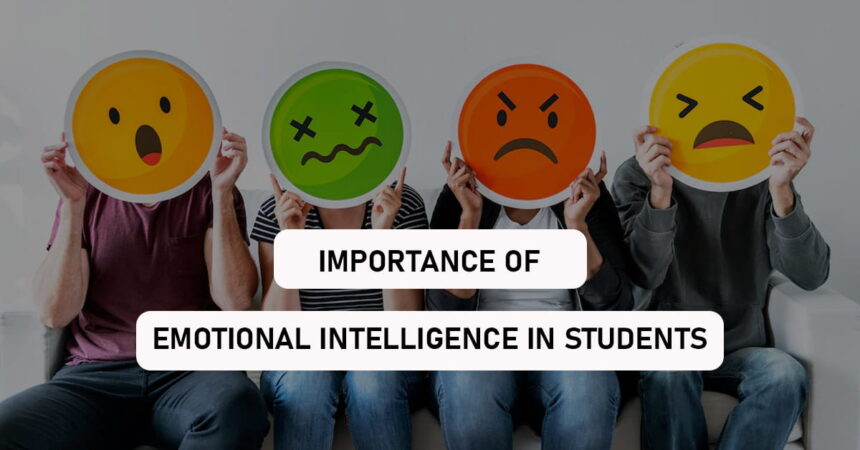In the pursuit of academic excellence and personal growth, much emphasis has traditionally been placed on cognitive abilities such as IQ and academic achievement. However, an emerging body of research highlights another crucial factor that significantly influences learning outcomes and overall success in education: emotional intelligence (EI). This article explores the profound impact of emotional intelligence on learning, academic achievement, and the holistic development of students.
Understanding Emotional Intelligence
Emotional intelligence, often referred to as EI or EQ (Emotional Quotient), encompasses the ability to recognize, understand, and manage one’s own emotions, as well as the ability to perceive and influence the emotions of others effectively. It involves several key components:
Self-awareness:
The ability to recognize and understand one’s own emotions, strengths, weaknesses, values, and motivations.
Self-regulation:
The capacity to manage and control one’s emotions, impulses, and behaviors in different situations.
Social awareness:
The skill of understanding and empathizing with others’ emotions, as well as being aware of social cues and dynamics.
Relationship management:
The ability to build and maintain positive relationships, communicate effectively, work collaboratively, and resolve conflicts constructively.
Impact of Emotional Intelligence on Learning
1. Enhanced Learning Environment
Emotional intelligence creates a conducive environment for learning by fostering positive relationships between students and teachers. When educators are attuned to students’ emotional needs and provide a supportive atmosphere, students feel more comfortable and motivated to engage actively in learning activities. This emotional support is crucial for academic perseverance and resilience, especially during challenging academic tasks or periods of stress.
2. Improved Academic Performance
Studies consistently show a positive correlation between emotional intelligence and academic achievement. Students with higher levels of emotional intelligence tend to demonstrate better problem-solving skills, critical thinking abilities, and academic motivation. They are also more adept at managing their time effectively, setting realistic goals, and persisting in the face of setbacks—all of which contribute to improved academic performance across various subjects and grade levels.
3. Effective Coping Mechanisms
Emotional intelligence equips students with effective coping mechanisms to navigate academic challenges and stressors. By developing self-awareness and self-regulation skills, students can identify their emotional triggers, manage anxiety or frustration, and maintain focus on their academic goals. This emotional resilience not only enhances their academic performance but also prepares them to handle the demands and pressures of academic life more effectively.
Implementing Emotional Intelligence in Education
1. Curriculum Integration
Integrating emotional intelligence into the curriculum involves incorporating activities, discussions, and exercises that promote self-awareness, social skills, and emotional management. These can include mindfulness practices, conflict resolution workshops, peer collaboration projects, and reflective journaling exercises. Such initiatives help students develop a deeper understanding of their emotions and interpersonal dynamics, thereby fostering a positive learning environment.
2. Teacher Training and Support
Educators play a pivotal role in nurturing students’ emotional intelligence. Professional development programs that focus on emotional intelligence training for teachers can enhance their ability to recognize and respond to students’ emotional needs effectively. By modeling empathy, active listening, and constructive feedback, teachers create a supportive classroom culture that encourages emotional growth and academic success.
3. Parental Involvement
Collaboration with parents is essential in promoting emotional intelligence in students. Schools can engage parents through workshops, seminars, and informational sessions on the importance of emotional intelligence development. Encouraging open communication between parents and educators ensures a holistic approach to supporting students’ emotional well-being and academic progress both at school and at home.
The Long-Term Benefits of Emotional Intelligence
Investing in the development of emotional intelligence yields long-term benefits beyond academic success. Students who possess strong emotional intelligence skills are better equipped to navigate interpersonal relationships, make responsible decisions, and adapt to new challenges in their personal and professional lives. These competencies are increasingly valued by employers and higher education institutions seeking well-rounded individuals with strong interpersonal skills and leadership potential.
Conclusion
In conclusion, emotional intelligence is a fundamental predictor of learning outcomes and academic success. By fostering emotional intelligence in students through tailored educational strategies, schools not only enhance academic performance but also cultivate essential life skills that contribute to personal fulfillment and societal well-being. As educators, parents, and policymakers continue to recognize the importance of emotional intelligence in education, we move closer to creating nurturing learning environments where every student can thrive academically, emotionally, and socially.
Through intentional integration of emotional intelligence into educational practices, we empower students to become resilient, empathetic, and adaptable individuals prepared to succeed in an increasingly complex and interconnected world.



